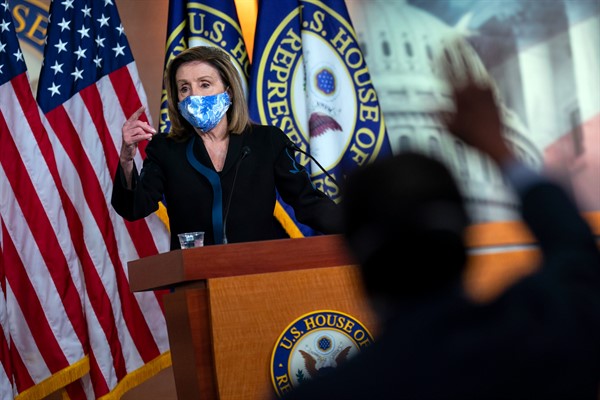Buried within the annual National Defense Authorization Act that overwhelmingly passed Congress this month is a measure that will strengthen American anti-money laundering and anti-corruption rules. Most notably, the NDAA, as the bill is known, will require the Treasury Department to begin collecting beneficial ownership information on companies registered in the U.S., effectively banning anonymously owned companies, including shell companies that are often used as fronts for dirty money. Assuming Congress overrides President Donald Trump’s threatened veto of the law, as expected, this is a game-changer for global efforts to fight graft.
The U.S. has long lagged behind other countries in collecting corporations’ beneficial ownership information. The United Kingdom began collecting such data about its own firms in 2016 and publishes the information on a public website. The European Union adopted beneficial ownership requirements as part of its 4th and 5th Anti-Money Laundering directives—adopted in 2015 and 2018, respectively—and member countries were required to set up company registries earlier this year, though most of them failed to fully meet the deadline. More than 30 countries around the world now have some form of beneficial ownership registry requirement.
The ability to easily form anonymous companies in the U.S. has made it a major obstacle in global anti-money laundering efforts. A study by the anti-corruption watchdog Global Financial Integrity found that in all 50 U.S. states, getting a library card requires more identification than setting up a corporation. This would be troubling in any country, but especially in America, the largest incorporator of companies in the world. Everyone from narcotics traffickers to human traffickers to terrorist financiers to corrupt politicians have used anonymous companies to launder money. The U.S. last year ranked 2nd on the Tax Justice Network’s Financial Secrecy Index, behind only the Cayman Islands and worse than well-known tax havens like Switzerland and the United Arab Emirates. As more countries closed off the ability to form anonymous companies in recent years, activists and experts had been increasingly concerned that even more dirty money would flow into the U.S.

